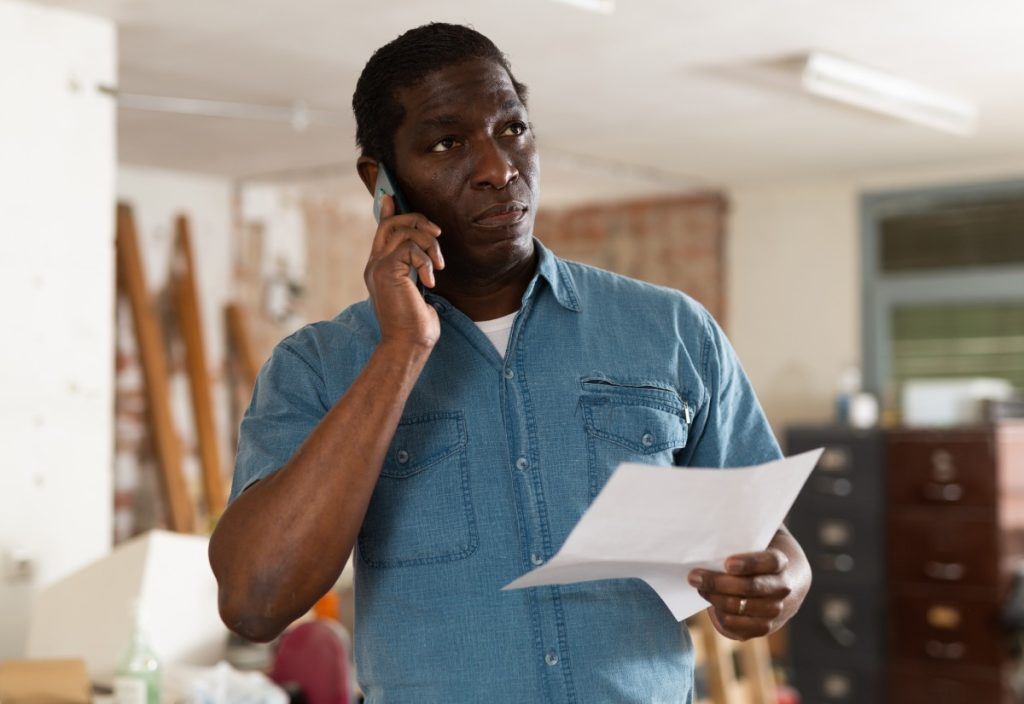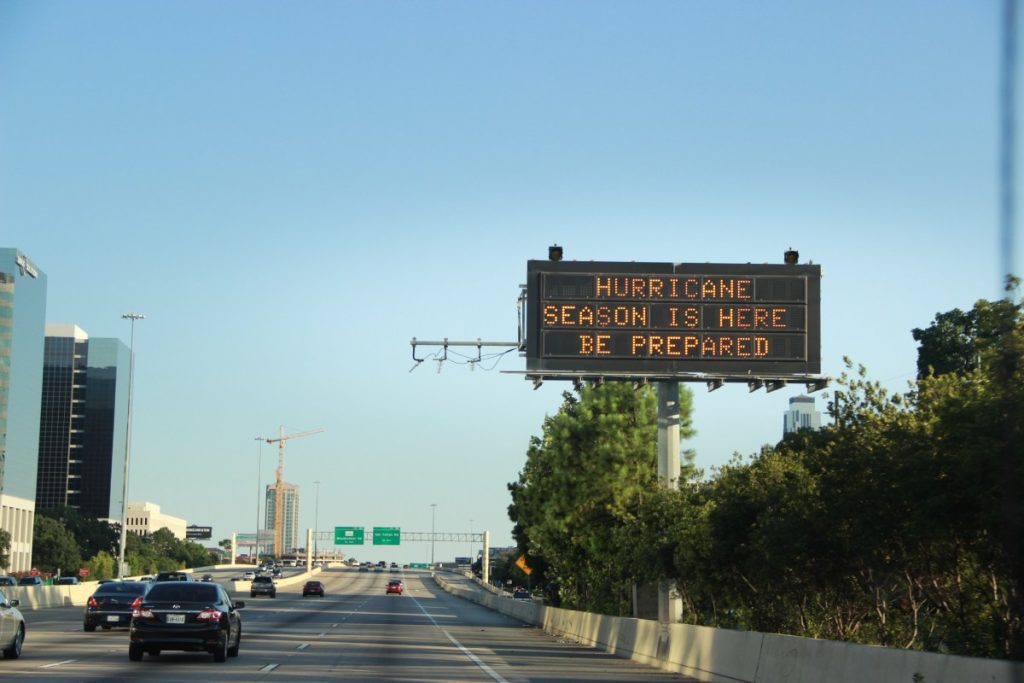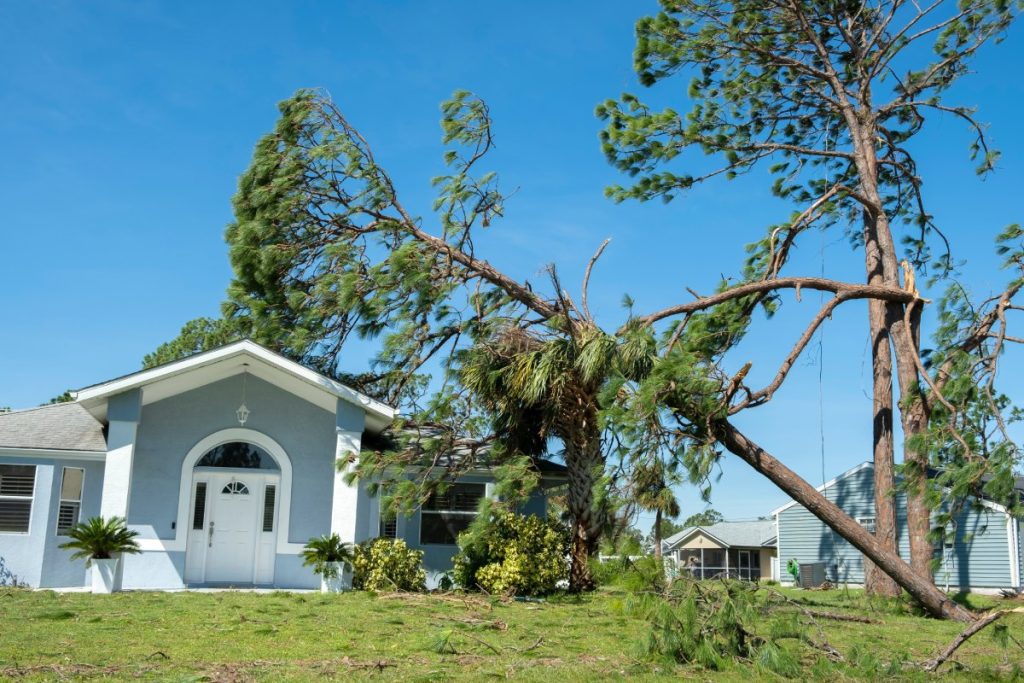When hurricane season arrives, it brings more than just strong winds and heavy rain. For homeowners and business owners, it can also bring considerable property damage and financial challenges. To safeguard against these risks, many rely on their insurance coverage. However, even after years of paying premiums, claims can still be denied or underpaid, leaving policyholders frustrated and financially strained.
Take Hurricane Helene, for example—a storm that extended from northwestern Florida to Tennessee, Georgia, North Carolina, and South Carolina. Data shows that about 88% of insurance claims were paid. That leaves 46,656 claims closed without payment, 33.2% of which were attributed to sub-deductible damage, 20.3% to flood exclusions, and 18.8% to other coverage issues.
Understanding your rights when facing hurricane insurance claim denials is essential. Whether you’re caught in disputes over vague policy terms or struggling with what feels like an unfair denial, this guide will help you protect your interests and get the payout you deserve.
Claim denied? Contact Merlin today for a free consultation to explore your options.
What Happens When Hurricane Insurance Claims Are Denied?
Insurance companies are responsible for processing claims quickly and in good faith. Nevertheless, thousands of policyholders face challenges such as delays, claim denials, or low settlement offers every year. Some are routine or arguable, while other actions by insurance providers may appear to be “bad faith” practices deliberately designed to delay or minimize payouts.
If your claim is denied, the first step is to review the denial letter carefully. This document must provide an explanation for the denial, referencing specific clauses in your homeowners or property insurance policy that exclude or limit coverage. Typical reasons for denial include insufficient documentation, disputes about the scope of coverage, or exclusions outlined in your policy.
We’ll examine what steps to take next a little further below, but first, let’s look at some common reasons for denials and underpayments.
Common Reasons for Hurricane Insurance Claim Denials or Underpayments
1. Lack of Sufficient Evidence
The damage to your home or business is obvious to you, but how obvious is it to someone reviewing your file who’s never set foot on the property? This is why thorough documentation is essential. Without clear photos, videos, and repair estimates, an insurance adjuster may claim that the extent of damage is unclear or unrelated to the hurricane.
2. Policy Exclusions
Many homeowners’ insurance policies exclude specific types of damage, such as flood damage. Unless you carry separate flood insurance through FEMA or private providers, most water damage caused by a storm surge might not be covered.
3. Anti-Concurrent Clauses
Some policies include anti-concurrent clauses, which deny coverage if both covered (e.g., wind damage) and non-covered (e.g., flood damage) events contributed to your loss.
4. Low Settlement Offers
Insurers often issue lowball settlement offers based on vague or insufficient damage appraisals. For instance, they may underestimate roof damage or repair costs.
Steps to Take If Your Hurricane Insurance Claim Is Denied
If your hurricane damage claim is denied or underpaid, don’t panic. You have multiple options to challenge the decision and strengthen your case. Here’s what to do next.
1. Review Your Denial Letter and Insurance Policy
Carefully read through the denial letter and compare it with your homeowners’ insurance policy or flood insurance policy. Look for clauses or exclusions cited in the denial. Understand the limits and coverage in your policy so you can prepare an informed response.
2. Document Everything Thoroughly
Take new photos and videos showing the extent of damage, especially areas that the insurance adjuster may have overlooked. Secure repair estimates from licensed contractors and gather additional documentation like invoices or proof of pre-storm conditions.
3. Consult a Public Adjuster
A public adjuster can provide an independent assessment of your property damage and help you dispute low payouts or claim denials. Their independent specialization strengthens your case with accurate appraisals and additional documentation.
4. File an Appeal
Follow your insurance provider’s appeals process. Provide all additional evidence and new documentation when submitting your appeal. Keep clear records of all communication, including emails and details from conversations with your insurance provider.
5. Seek Legal Assistance for Escalated Disputes
If the appeals process fails to resolve the dispute, consult an experienced insurance claim lawyer. At Merlin Law Group, we specialize in property insurance claims. We can review your case, help determine whether there’s bad faith at work in your insurer’s response, and take legal action on your behalf. Hiring an attorney shows your insurer you’re serious about pursuing your rights and improves the likelihood of a better outcome in your favor, even when the case doesn’t go to court.
How To Avoid Common Pitfalls When Filing Hurricane Insurance Claims
You can reduce the likelihood of experiencing problems with the claims process by proactively addressing potential issues. Here are some guidelines to follow.
- Organize Thorough Documentation: Take time-stamped photos and videos of exterior and interior property damage immediately after a hurricane. Keep these alongside repair estimates and receipts.
- Understand Your Policy: Familiarize yourself with the fine print, including policy exclusions, coverage limits, and anti-concurrent clauses.
- Get Professional Assessments: Consult a public adjuster or contractor early in the claims process for accurate appraisals.
- Prevent Further Damage: After documenting everything, take reasonable steps to prevent further damage, such as tarping a roof or drying wet areas. Insurers may reduce payouts if they believe policyholders failed to mitigate additional damage.
When to Consult an Insurance Claim Lawyer
Sometimes, disputes go too far to handle independently. Here are scenarios where legal expertise becomes crucial:
- Bad Faith Practices: If your insurance company disregards evidence, delays payment, or denies claims unfairly, an attorney can investigate whether bad faith practices are at play.
- Complex Underpayments or Appeals: Legal counsel often becomes necessary for rejected appeals or settlements well below the cost of repairs, primarily due to ambiguous exclusions or low settlement offers.
- Expert Negotiation for Fair Settlements: Experienced lawyers like those at Merlin Law Group specialize in achieving fair settlements and litigating on behalf of policyholders. They often work on a contingency basis, meaning you won’t pay until they win your case.
How Merlin Law Group Can Help
At Merlin Law Group, we’ve spent decades advocating for policyholders nationwide. If your hurricane insurance claim was denied or underpaid, we’ll help you turn things around.
Our lawyers specialize exclusively in property insurance disputes, fighting for compensation that truly reflects your losses. We operate on a “No Fee Unless We Win” model, ensuring financial relief for policyholders facing damage repair costs.
Contact us today for a free consultation to explore your options.
FAQs
What Are the Most Common Reasons for Claim Denial During Hurricane Helene or Milton Claims?
The most common reasons for denial are Insufficient documentation, vague policy terms, or policy exclusions, such as flood damage not covered under a standard homeowners policy.
Can I Appeal a Denied Hurricane Insurance Claim?
Yes. Review the denial letter, gather additional evidence, and follow your insurance provider’s appeals process. Check out the steps listed in the blog above for a more thorough review of the steps to follow.
What Is the Role of Public Adjusters or Legal Counsel in Dealing with Insurance Companies?
A public adjuster is a licensed professional who works on your behalf, not the insurer’s, to assess property damage, prepare documentation, and negotiate a fair settlement, typically charging a percentage of your final payout. Legal counsel, particularly attorneys who specialize in insurance law, step in when claims are wrongfully denied, underpaid, or delayed, advocating for your rights, interpreting your policy, and taking legal action on your behalf if necessary.



